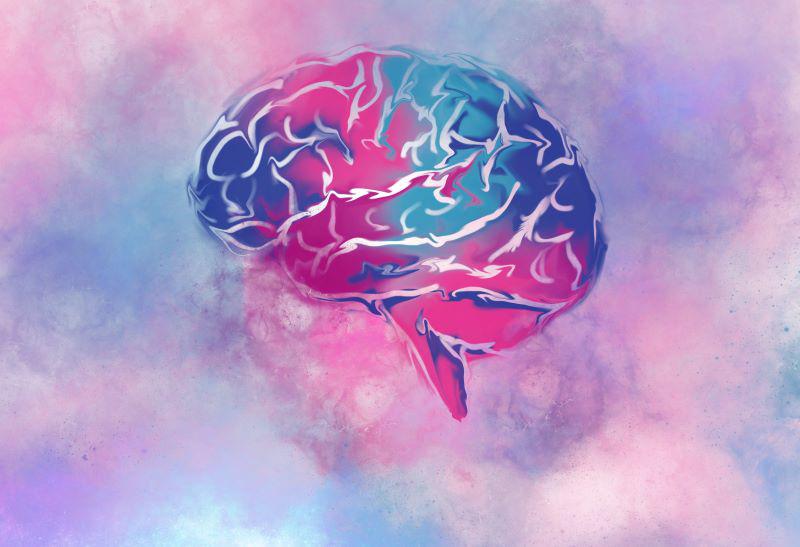Patient Resources
Get Healthy!
Results for search "Down Syndrome".
Health News Results - 11
Down Syndrome Patients Have Higher Stroke, Heart Attack Risk
- HealthDay Reporter
- Dennis Thompson
- May 8, 2025
- Full Page
People with Down syndrome have a much higher risk of stroke than people without the genetic disorder, a new study says.
Down syndrome pa...
Scientists Discover First Case of Down Syndrome in Neanderthals
- HealthDay Reporter
- Dennis Thompson
- June 28, 2024
- Full Page
Scientists have documented the first case of Down syndrome in Neanderthals, a finding which also supports the notion that these cousins of modern man were capable of providing care ...
Most Kids With Down Syndrome Have Sleep Apnea, But New Implant Can Help
- HealthDay Reporter
- Dennis Thompson
- April 11, 2024
- Full Page
Four-year-old Theo Scott was born with Down syndrome, and since the age of 1 he's also had to wear a CPAP device whenever he sleeps, to help ease his sleep apnea.
He's not alone: E...
Two-Thirds of Severe COVID Survivors Face Health Issues Months Later
- HealthDay Reporter
- Dennis Thompson
- April 11, 2024
- Full Page
People who survive a long and harrowing bout of COVID-19 do not emerge unscathed from their illness, a new study warns.
Two-thirds of severe COVID patients still have physical, psyc...
Remains Show Prehistoric Peoples Cared for Those With Down Syndrome
- HealthDay Reporter
- Dennis Thompson
- February 21, 2024
- Full Page
Rare gene-driven defects such as Down syndrome have occurred among human beings for many thousands of years, a new analysis of ancient DNA has revealed.
Not only did the birth defects exist, but these infants were often buried with care by their community. That suggests ...
Children With Down Syndrome More Vulnerable to Leukemia
- HealthDay Reporter
- Cara Murez
- November 1, 2023
- Full Page
While new treatments for leukemia have improved outcomes for many patients, children with Down syndrome have not benefited as much.
These young people are at increased risk for acute lymphoblastic leukemia (ALL) and have higher rates of relapse and treatment-related harm...
Better Health Care Access Is Helping People With Down Syndrome Live Longer
- HealthDay Reporter
- Cara Murez
- October 19, 2023
- Full Page
Americans with Down syndrome have a critical lifeline in Medicaid insurance, new research confirms.
But the publicly funded insurance program will have to respond to rising numbers of older adults with Down syndrome, researchers say.
"As more people with Down syndr...
Science Reveals Links Between Down Syndrome & Alzheimer's
- HealthDay Reporter
- Dennis Thompson
- November 22, 2022
- Full Page
The genetic abnormality that drives Down syndrome causes the same sort of abnormal brain plaques and protein tangles that are found in Alzheimer's disease patients, a new study reports.
Amyloid beta plaques and tau tangles have long been associated with Alzheimer's disea...
In Small Study, Hormone Boosts Thinking Skills in Men With Down Syndrome
- HealthDay Reporter
- Dennis Thompson
- September 1, 2022
- Full Page
Men with Down syndrome may think and remember better when treated with a brain hormone normally associated with f...
One Factor Is Key to Healthy Eating for Kids With Down Syndrome
- HealthDay Reporter
- Cara Murez
- August 31, 2022
- Full Page
When it comes to food, kids with Down syndrome have definite likes and dislikes -- and a food's texture is crucial.
Food with a crispy, oily mouthfeel generally get a big thumbs-up, while brittle or gooey foods get a thumbs-down.
But picky food choices can result ...
Tongue Stimulator Shows Promise as Sleep Apnea Treatment in Kids With Down Syndrome
- HealthDay Reporter
- Robert Preidt
- April 22, 2022
- Full Page
Children with Down syndrome are more likely than other kids to have sleep apnea, and existing treatments often fail to work.
Now, an implanted device that stimulates tongue nerves shows promise in reducing their sleep disruptions, a new study finds.
A device calle...











